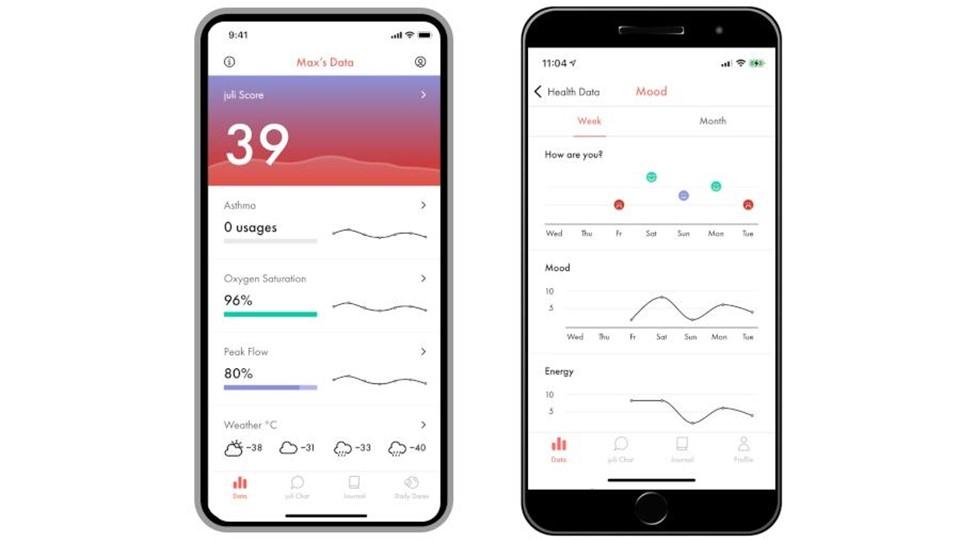Digital health app Juli shows worth in asthma, depression

Juli, an artificial intelligence-powered platform to help people manage chronic health conditions, has been shown to improve outcomes in a pair of randomised clinical trials (RCTs) in people with asthma and depression.
The two studies – conducted in collaboration with researchers at University College London – both showed that Juli was able to achieve statistically significant improvements compared to control, putting the platform among a select group of digital health apps with efficacy evidence supported by RCTs.
Juli is a chronic condition management platform that can collect data from multiple sources – smart devices, environmental data, electronic health records, self-reported outcomes, etc. – with the aim of helping patients self-manage their health and enhance interactions with healthcare workers.
In a trial involving 411 patients with poorly-controlled asthma, the smartphone-based app was used by one group for up to eight weeks, and compared to a control group that used a limited placebo version of the software.
Patients using Juli experienced a mean 5.33-point rise in Asthma Control Test (ACT) scores, rising from 12.60 to 17.93, compared to 16.24 for the control group, which the study investigators said suggests the app could augment existing care pathways for asthma.
They were also more than twice as likely to meet the definition of a minimal clinically important difference (MCID) in ACT scores at eight weeks, defined as a 3-point improvement, but there were no between-group differences in other secondary outcomes.
There was a similar pattern in the 662-subject depression study, with patients using Juli experiencing a mean 5.31-point fall in their Patient Health Questionnaire-8 (PHQ-8) scores, dropping from 16.09 to 10.78, compared to 11.88 in the control group.
All told, 51% of participants using Juli achieved remission, defined as PHQ-8 scores less than 10, and they were more than twice as likely to achieve remission as those in the control group.
"Digital health apps have the potential to improve patients' conditions, but most have not been rigorously assessed in randomised controlled trials," said Joseph Hayes, professor of psychiatry at UCL and a co-founder of Juli.
"Our studies not only demonstrate the effectiveness of the platform; they also show that Juli works across the very different conditions of asthma and depression, validating our approach to cover multiple chronic conditions, including their comorbidities," he added.
Juli was one of several digital health start-ups to receive funding from the US federal government in 2021 in the PandemicX accelerator, a programme to address health inequality and mitigate the effects of COVID-19.
Along with asthma and depression, the platform has also been developed to support patients with bipolar disorder, anxiety, various forms of pain, high blood pressure, chronic obstructive pulmonary disease (COPD), and migraine.












